PBS pricing: affordable medicines explained
The Pharmaceutical Benefits Scheme (PBS) helps make many medicines cheaper, but how PBS medicines are priced and what they cost can be confusing.
Here you'll find simple information and resources to help community pharmacies and consumers better understand the pricing and costs of PBS prescriptions.
From 1 January 2026, the maximum out-of-pocket cost of PBS prescription medicines will be reduced from $31.60 to $25 for general patients who don't hold a health or concession card.
PBS pricing
| Category | From Jan 1, 2024* |
|---|---|
| General patients | $31.60 |
| Concessional patients | $7.70 |
| Closing the Gap (General patients) | $7.70 |
| Closing the Gap (Concessional patients) | $0.00 |
*Maximum cost per prescription
PBS patient co-payments
Under the PBS, patient co-payments are the out-of-pocket costs that patients pay for PBS medicines:
The rest of the cost is subsidised by the government to keep essential medicines affordable.
Professional fees explained
When you fill a PBS prescription, certain professional fees are added to cover the cost of services provided by your pharmacist. These fees ensure the safe and professional handling of your medicines.
Here's a breakdown in simple terms:
Frequently asked questions
Got questions about how PBS pricing works? This section answers the most common queries to help you understand the costs and access to your medications under the Pharmaceutical Benefits Scheme. Whether you're curious about co-payments, eligibility or specific pricing details, we’ve got you covered!
The 8th Community Pharmacy Agreement, an agreement between the Minister for Health and Aged Care and the Pharmacy Guild of Australia, came into effect on 1 July 2024. As part of the Agreement, the Guild negotiated new funding that will see a one-year freeze on the maximum cost of a PBS prescription for everyone with a Medicare card. This freeze will extend up to five years for pensioners and other Commonwealth concession cardholders. Additionally, a saving of $1 on PBS medicines will be phased in for all Australians by 1 January 2029, funded by the Commonwealth Government.
The Australian Government’s Pharmaceutical Benefits Scheme (PBS) makes medicines more affordable for everyone. Most Australians pay a capped amount for their PBS prescriptions, while the government covers the rest. This way, you can access numerous necessary medications without breaking the bank.
The standard price for a PBS prescription is capped at $31.60 for the general population. For more details, see our table outlining the different categories of PBS pricing. This way, you can easily see what you might pay based on your situation.
If you have a Pension, Concession or Veteran’s card, you’ll only pay $7.70 for your PBS prescriptions. If you have a Veteran’s White Card, this lower price only applies to certain conditions. It’s a good idea to check with your community pharmacist to see if your medicine is covered by your White Card.
For Aboriginal and Torres Strait Islander people registered in the Closing The Gap program, PBS prescriptions are usually free if you have a Pension, Concession or Veteran’s card. If you don’t have one of these cards, the price is $7.70.
For more details about how the program works, see the Closing The Gap webpage.
To register for the Closing The Gap program, Aboriginal and Torres Strait Islander people must visit their doctor or an Indigenous Health Services provider. The registration process is simple, and you only need to do it once, no matter where you are in Australia. Once registered, you can access the program benefits for your PBS prescriptions.
If your concession card has expired but you’re still eligible for one, you’ll need to contact Centrelink to get a new card. In the meantime, PBS medicines will be charged the higher rate. Don’t worry—your pharmacist can provide you with a receipt, which you can use to claim the difference from Medicare.
If you and your immediate family fill many PBS prescriptions throughout the year, you might reach the PBS Safety Net threshold. This means you can access your PBS prescriptions at a lower price for the rest of the year. The standard PBS Safety Net price is $7.70, and prescriptions are free for those with a Pension, Concession or Veteran’s card.
In 2024, the PBS Safety Net threshold is $1,647.90 for the general public and $277.20 for those with a Pension, Concession or Veteran’s card. The Safety Net scheme covers a calendar year, so it resets every January.
To find out more, see the PBS Safety Net thresholds webpage.
Some prescriptions might cost more than the cap because there are different brands of a medicine and their prices can vary. This difference is called a Brand Premium. It’s an extra cost that the Australian Government and the medicine company have agreed upon.
When your pharmacist buys the medicine, they pay this extra amount, which means they have to charge you more when you get your prescription. So, if your prescribed medicine has a Brand Premium, its price could be higher than the PBS price cap.
If you find yourself facing a Brand Premium, you can ask your pharmacist about switching to a different brand—often called a generic medicine—that doesn’t have this extra cost. Your pharmacist can help you understand Brand Premiums and guide you to more affordable options.
While the standard PBS price cap is $31.60, some PBS medicines can cost less. This happens when the price for the pharmacy to buy and dispense the medicine is lower than that cap.
Pharmacies can set their own prices for these PBS medicines, which may include extra fees to help cover their costs. For example, there’s a fee of $1.48 for keeping Safety Net records on ready-prepared medicines, plus an Allowable Fee of up to $3.45. This allows for differences in business costs, like rent, wages, utilities and insurance.
Importantly, while pharmacies can choose their prices, they can’t charge more than the standard price cap of $31.60. To keep the prescription as a PBS script that counts towards the PBS Safety Net threshold, any additional charges are capped at $4.90 for ready-prepared medicines.
If you’re curious about the price of your medicines, feel free to ask your pharmacist before they dispense them.
Further information for current patient fees and charges is available at the PBS website.
You can find more information about the medicines subsidised by the Australian Government through the Pharmaceutical Benefits Scheme (PBS) website. This site also has a complete list of prices for all PBS medicines.
If you have any questions about the price of your medicine, don’t hesitate to ask your community pharmacist—they’re there to help.
OUR SERVICES What We Offer

Everyday health
Your local community pharmacy is your go-to destination for everyday health needs. From coughs and colds to travel health and mobility care, your community pharmacists can do more for you with expert advice and effective treatments to help you stay healthy and active. Explore our range of services to keep your family well every day.
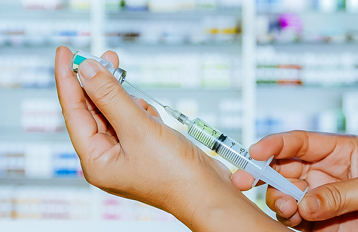
Vaccination
Your community pharmacist can do more for you with a wide range of vaccines available, from flu and COVID-19 to essential travel immunizations. Visit your local pharmacy to stay healthy, protected, and up-to-date with your vaccinations.
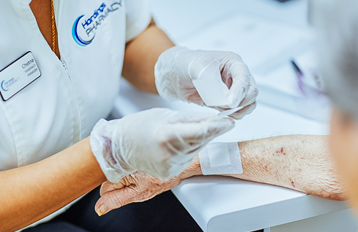
Skin
Your community pharmacist is here to help you care for your skin, from managing common conditions like school sores, eczema, and acne to offering guidance on wound care, shingles, and sun protection. Visit your local community pharmacy for expert advice and effective solutions to keep your skin healthy every day.

Women's health
Community pharmacists are enhancing women’s health by providing comprehensive support at every stage – from conception and contraception to bone health and beyond.

Harm reduction & dependency
Your community pharmacist is here to help with harm reduction and dependency, offering support, resources, and more.
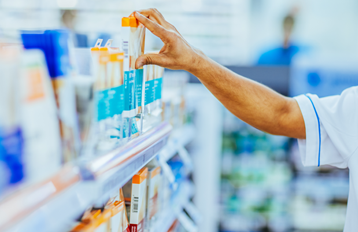
My medicines
Get expert support with your medications through comprehensive reviews and management services provided by your community pharmacist. From home medicine reviews and MedsCheck consultations to dose administration aids and staged supply, we’re here to help you every step of the way.
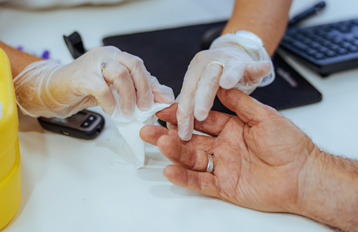
Chronic conditions
Get the support you need from your community pharmacist to manage chronic conditions. With expert advice, personalised medication management and tailored health services, community pharmacies empower you to take control of ongoing health challenges and improve your quality of life.
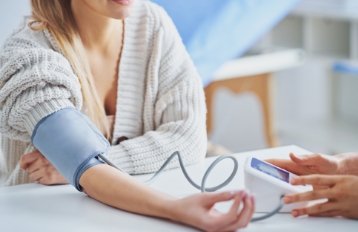
Testing & screening
Take control of your health with convenient testing and screening services at your community pharmacy. From regular monitoring to early detection, these essential services help identify potential health risks and support proactive care. Your pharmacist is here to guide you in staying informed and making health-conscious decisions for a healthier future.



